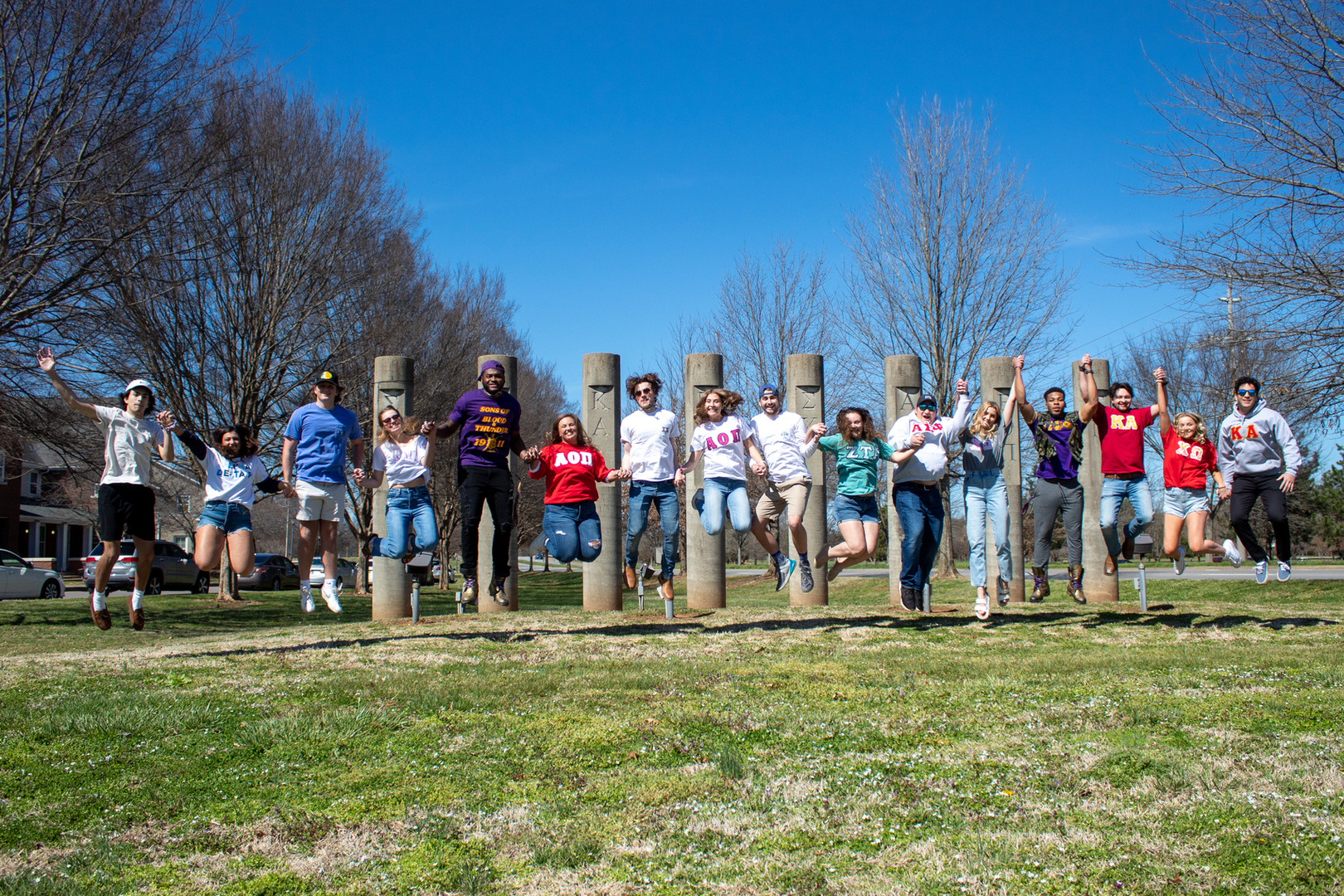Fraternity and Sorority Life
STANDKIND Bystander Intervention

What is STANDKind?
STANDKind is a student-led and staff-supported initiative focused on creating a community in which members of Middle Tennessee State University are committed to “kindness.” The STANDKind initiative supports the idea that all Blue Raiders have the ability STAND and prevent harmful or high-risk behavior through bystander intervention.
Across the nation, there are many bystander intervention initiatives being utilized; however, the majority of programs are topic-specific. STANDKind is not specific to one topic, it is all encompassing—put simply, it’s about doing what’s right. STANDKind empowers students to respect and care for one another, promotes kindness in all aspects of life, while reinforcing MTSU’s core values as outlined in the True Blue pledge, specifically: honesty and integrity; respect for diversity; and committing to reason, not violence.
STANDKind is committed to cultivating a culture of genuine care and concern in which kind action is the norm. STANDKind builds on the existing campus initiatives at the university. Through unified efforts and consistent education, we strive to empower students to play a role in creating positive change. We believe this is accomplished by:
- REALIZING THE POWER OF ONE
- UNDERSTANDING THAT IT’S ON US
- STANDKIND AND DON’T STAND BY.
WHAT IS A BYSTANDER?
A bystander is someone who is aware of potentially harmful or problematic situations including alcohol, hazing, sexual assault, discrimination, anger, bullying, academic misconduct, and more.
WHAT IS BYSTANDER INTERVENTION?
Bystander Intervention is being aware of potentially harmful or problematic situations and choosing to respond in a way that influences positive outcomes.
STANDKind Steps to Intervention
- Notice the situation
Be aware of your surroundings and what is happening around you. - Interpret the situation as a problem
Sometimes, we are not sure what we are witnessing. For example, if you see a student laying on the Quad at 2:00 am. One could think the student is simply sleeping. But, what if the person is not sleeping and is actually having a medical emergency? Step 2 encourages students to trust their instincts. If something does not seem right, it probably is not. If a situation catches your attention and seems a bit off, interpret it is a problem. - Assume responsibility
Bystander research shows people are less likely to help if they are in a large group or in a crowd. Why? Often we think someone else will help, or if everyone else is not helping, then it must not be a problem. Be that someone who does something. If not you, then who? - Know how to help
STANDKind using the 4D’s of Intervention: Direct. Distract. Delegate. Delay.- Direct – Directly addressing the situation.
For example, if you hear someone using offensive language, such as “that’s so gay” or “that’s retarded,” it’s important for you to STANDUp and say, “Hey, you know, that’s not cool. We don’t talk like that anymore.”
- Distract – Making a simple (or elaborate) distraction to diffuse the situation.
For example, if a couple is arguing and things are getting heated, UnderSTAND that what is happening is not okay. You can tell one of them that someone is outside urgently looking for him/her.
- Delegate – Finding someone else to address the concern.
This is a good option if you do not feel safe directly intervening, you are not sure what to do, or you simply do not want to get directly involved. For example, if you know hazing activities are taking place, STANDFor what’s right by reporting it to an advisor, RA, or online.
- Delay – For many reasons, you may not be able to do something right at the moment.
For example, if you notice someone in a situation is feeling unsafe, STANDGuard and utilize a distraction technique by asking the person to use the bathroom with you or go get a drink with you to separate them from the person that they are with.
- Direct – Directly addressing the situation.
